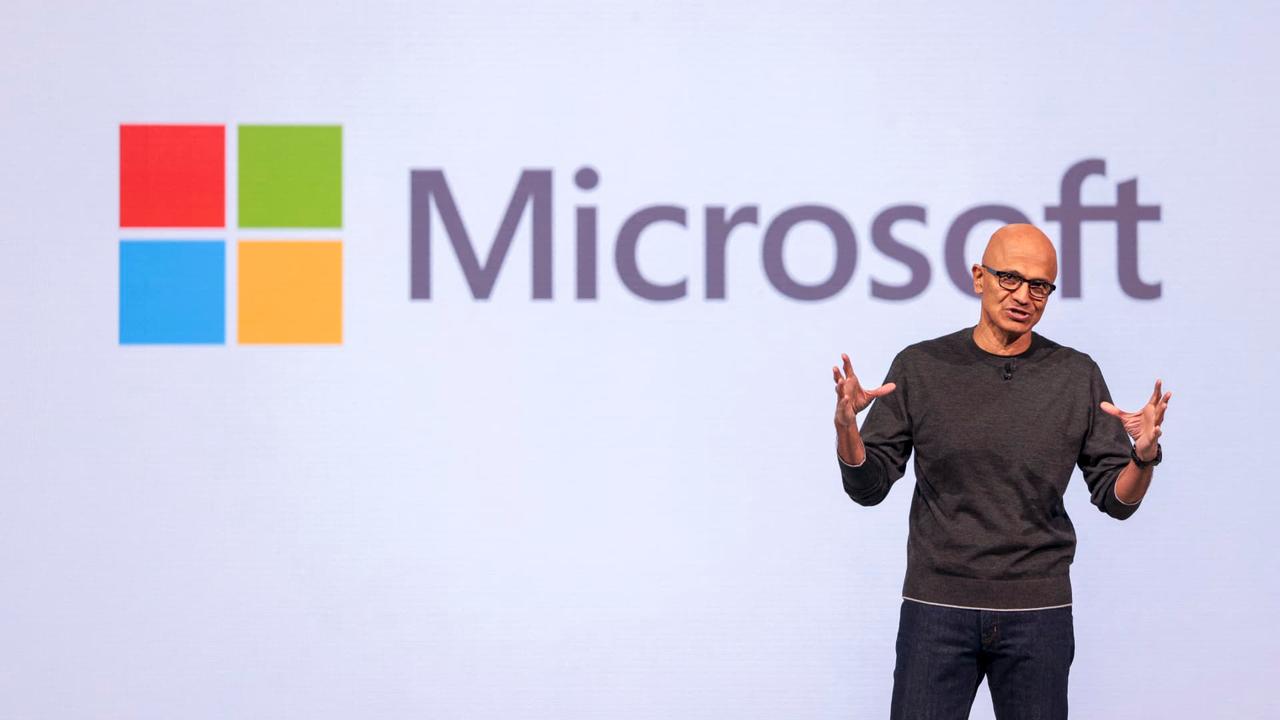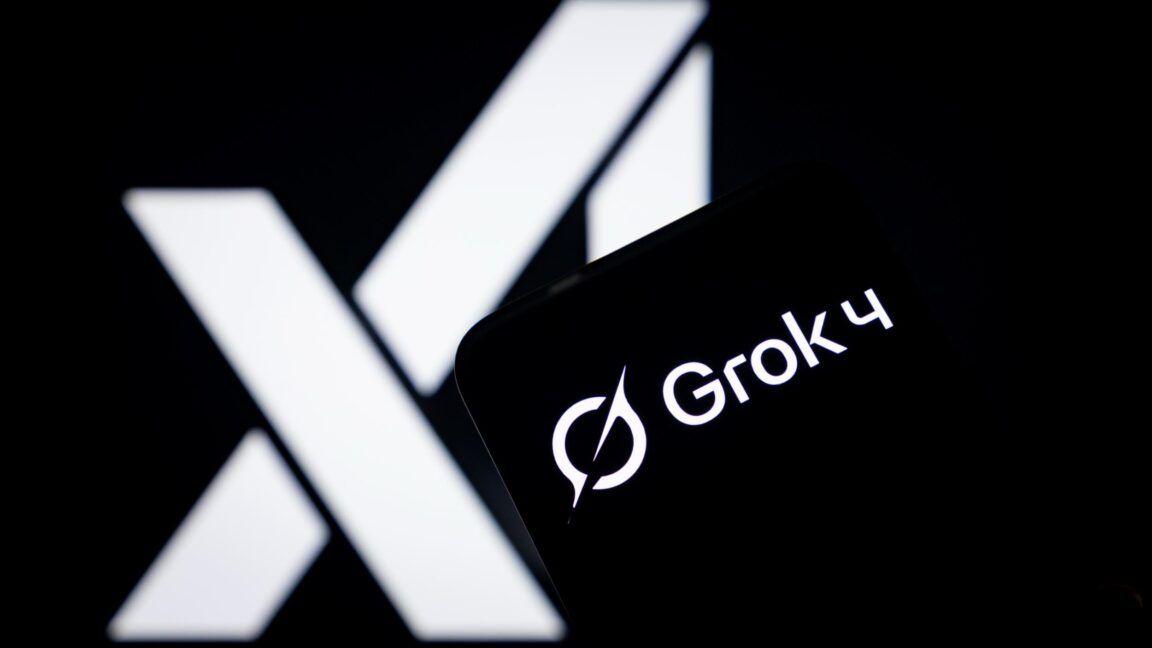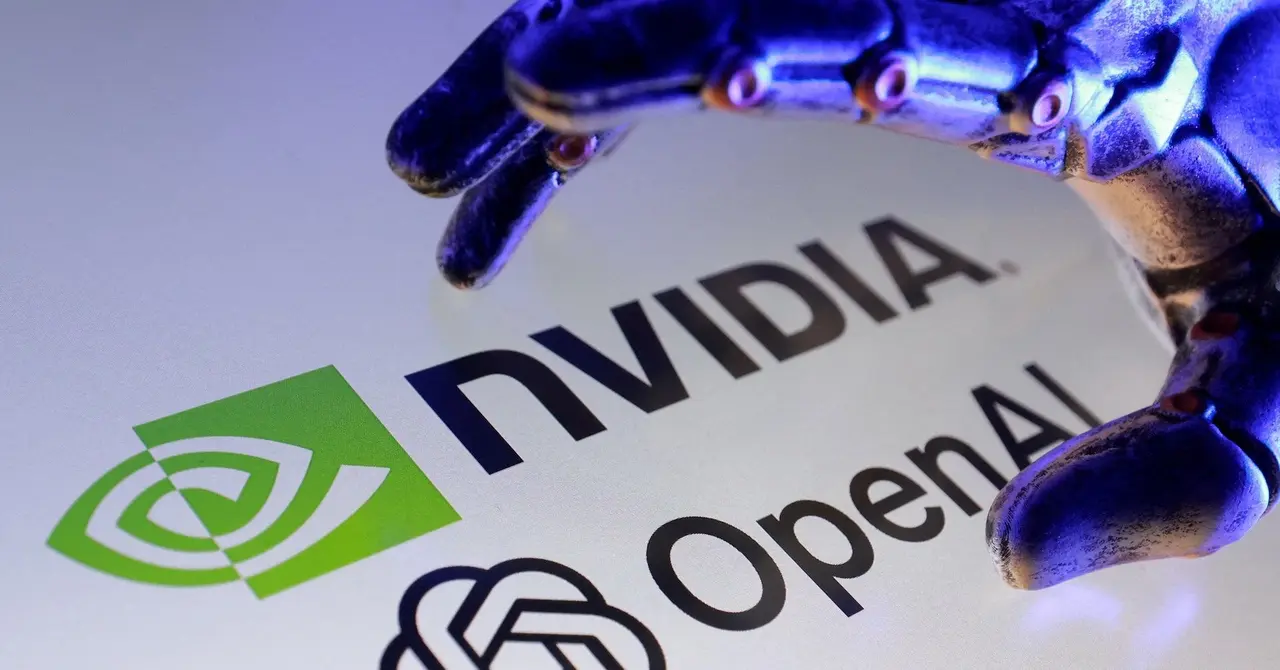Microsoft's AI Lead Diminishes as Competitors Catch Up, Prompting Stock Downgrade
3 Sources
3 Sources
[1]
Microsoft downgraded on fear its AI lead over Amazon and Google is gone
D.A. Davidson believes that Microsoft 's rivals may have caught up to the cloud computing giant. These fears prompted the investment firm to downgrade the tech titan and "Magnificent Seven" member to a neutral rating from buy. Analyst Gil Luria maintained his price target of $475, which is approximately 9% higher than where Microsoft stock closed on Friday. Shares of Microsoft have risen nearly 16% this year. MSFT YTD mountain MSFT YTD chart The justification for Microsoft's premium valuation may have been lost as competitors have largely caught up in the artificial intelligence space, Luria said. In particular, Amazon Web Services and Google Cloud Platform appear to pose the biggest threats to Microsoft's Azure cloud computing platform. "We believe that Microsoft's lead is now diminished in both the cloud business and code generation business, which will make it hard for MSFT to continue to outperform," Luria wrote. Microsoft gained its edge through an early investment in OpenAI and its ability to quickly deploy capabilities within Azure and GitHub, translating to "superior results" in the last several quarters, Luria said. But Amazon Web Services is now adding nearly as much cloud business, while Google Cloud Platform's current acceleration is comparable to that of Azure's last-quarter growth rates. Despite having the first-mover advantage, Luria also expects Microsoft's lack of technological prowess versus its peers will pose a significant obstacle for the firm. "Our new proprietary hyperscaler semiconductor analysis indicates AWS and GCP are far ahead in terms of deploying their own silicon into their data centers, which gives them a significant advantage over Azure going forward," he said. "While Microsoft has discussed its Maia chips, it is years behind Amazon and Google and appears to be using them only to run Azure OpenAI Services workloads. We believe this means Microsoft has been escalating an arms race it may not be able to win."
[2]
Microsoft's AI Lead Shrinks: Analyst Downgrades Stock As Amazon And Google Close The Gap - Microsoft (NASDAQ:MSFT)
Analyst notes Microsoft must cut costs as cloud rivals catch up. DA Davidson analyst Gil Luria downgraded the rating on Microsoft Corp MSFT to Neutral from Buy while maintaining a price target of $475. Luria noted competition has essentially caught up with Microsoft on the AI front, which reduces the justification for the current premium valuation. The analyst now ranked Microsoft fourth within the Magnificient Six. The stock increased 92% since his January 2023 initiation, compared to 49% for the S&P500. Luria noted that Microsoft has accelerated growth and extended margins over the last few quarters as the first to embrace and commercialize generative AI. Through an early investment in OpenAI and the ability to quickly deploy capabilities within Azure and GitHub, it took a significant lead over Amazon.Com Inc AMZN Amazon Web Service and Alphabet Inc GOOG GOOGL Google Cloud, which translated to superior results over the prior 4-6 quarters. The analyst noted that Microsoft's lead is now diminished in both the cloud and code generation businesses, making it difficult for Microsoft to continue to outperform. Luria said AWS is already adding nearly as much cloud business as Azure after a few quarters of Microsoft adding more business. Google Cloud Platform's expansion has also seen its business accelerate to comparable growth rates as Azure prior quarter. The analyst's new proprietary hyperscaler semiconductor analysis indicates AWS and GCP are far ahead in deploying their silicon into their data centers, giving them a significant advantage over Azure in the future. While Microsoft has discussed its Maia chips, it is years behind Amazon and Google and seems to be using them only to run Azure OpenAI Services workloads, he flagged. Luria noted this means Microsoft has been escalating an arms race it may not be able to prevail. He said this makes Microsoft beholden to Nvidia Corp NVDA, which means it will continue to shift wealth from its shareholders to Nvidia shareholders. After significant margin expansion last year, Microsoft is now guiding for a decline in operating margins to pay for the data center capex, increasing from 12% to 21% of revenue, Luria emphasized. This is a higher rate of increase than Amazon and Google due to Microsoft's greater reliance on Nvidia. The analyst said that Microsoft overinvests at these rates yearly, diminishing margins by at least 100 bps cumulatively. To offset the margin drag, Microsoft would need to lay off ~10,000 employees for every year of over-investment. While Nvidia and others have pointed to a strong ROI for hyperscalers such as Azure, Luria flagged that these returns may only last for a while. The analyst noted Azure's growth may be boosted by self-funded revenue, such as from OpenAI. Luria noted Microsoft has also lost much of the lead for GitHub Copilot. Not only have Amazon and Gitlab mostly caught up to GitHub Copilot's capabilities, he said Cursor has become the new standard. Luria projected fiscal first-quarter 2025 revenue of $64.2 billion and EPS of $2.96. Price Action: MSFT stock is down 0.50% at $433.10 at last check Monday. Photo via Shutterstock Market News and Data brought to you by Benzinga APIs
[3]
Microsoft stock earns a rare Wall Street downgrade By Investing.com
D.A. Davidson analysts downgraded Microsoft (NASDAQ:MSFT) on Monday from a Buy to a Neutral rating, while maintaining a $475 price target. The firm cited intensifying competition in AI as the reason for the revision, noting that competitors have largely caught up with Microsoft's AI capabilities, "which reduces the justification for the current premium valuation." The tech giant's shares have surged 92% since January 2023, outperforming the S&P 500's 49% gain during the same period. Microsoft had previously taken a significant lead in both cloud business and code generation by being the first to embrace and commercialize generative AI. This was largely due to an early investment in OpenAI and rapid deployment of capabilities within its Azure and GitHub platforms. However, D.A. Davidson now believes that Microsoft's lead has diminished as Amazon (NASDAQ:AMZN) Web Services (AWS) and Google (NASDAQ:GOOGL) Cloud Platform (GCP) have shown comparable growth rates and are closing the gap in cloud business additions. "Our new proprietary hyperscaler semiconductor analysis indicates AWS and GCP are far ahead in terms of deploying their own silicon into their data centers, which gives them a significant advantage over Azure going forward," analysts said. Microsoft's Maia chips are still years behind those of Amazon (AMZN) and Google (GOOGL), with current use limited to running Azure OpenAI Services workloads. This, analysts note, puts Microsoft in a difficult position in the escalating data center arms race. Microsoft's reliance on Nvidia (NASDAQ:NVDA) for data center operations is also seen as a potential weakness, as it could lead to a shift of wealth from MSFT shareholders to NVDA's. The company is now experiencing operating margin declines due to increased data center capital expenditures, which are growing from 12% to 21% of revenue. "This is a higher rate of increase compared to Amazon and Google, a result of Microsoft's greater reliance on NVIDIA," analysts point out. "Every year Microsoft over-invests at these rates, it will diminish margins by at least 1pp in a cumulative manner. Microsoft would need to lay off ~10,000 employees for every year of over-investment in order to offset the margin drag." Lastly, analysts voiced concerns about the quality of Azure's revenue growth, which may be inflated by self-funded revenue from OpenAI. Microsoft's investment in OpenAI, which exclusively operates on Azure, could be considered lower quality revenue that drives much of Azure's recent acceleration. Moreover, competition in code generation tools has increased, with Amazon and Gitlab catching up to GitHub Copilot's capabilities, and Cursor emerging as a new industry standard.
Share
Share
Copy Link
Microsoft faces a rare stock downgrade as analysts suggest its AI advantage over rivals Amazon and Google is narrowing. The tech giant's stock price falls in response to concerns about increased competition in the AI space.

Microsoft's AI Dominance Challenged
In a surprising turn of events, Microsoft Corporation has received a rare stock downgrade from Wall Street analysts, signaling growing concerns about the company's position in the artificial intelligence (AI) race. The downgrade comes as competitors Amazon and Google are perceived to be closing the gap in AI capabilities, potentially eroding Microsoft's early lead in the field
1
.Analyst Downgrade and Stock Impact
UBS analyst Karl Keirstead made the bold move of downgrading Microsoft's stock from "buy" to "neutral," citing fears that the tech giant's AI advantage may be diminishing
2
. This decision marks the first time in nearly eight years that UBS has not maintained a "buy" rating on Microsoft shares. The downgrade has had an immediate impact on Microsoft's stock price, with shares falling by 1.7% following the announcement3
.Competitive Landscape Shifts
The primary concern driving the downgrade is the rapid advancement of Microsoft's competitors in the AI space. Amazon and Google, in particular, have been making significant strides in developing and implementing AI technologies across their platforms. This progress has led analysts to question whether Microsoft's early mover advantage in AI, particularly through its partnership with OpenAI and the integration of ChatGPT into its products, is still as substantial as previously believed
1
.Valuation Concerns and Future Outlook
Another factor contributing to the downgrade is the current valuation of Microsoft's stock. With the company's shares trading at historically high multiples, there are concerns that the potential for further significant gains may be limited in the near term. Analysts suggest that much of the AI-driven growth potential might already be priced into the stock, leaving little room for upside surprises
2
.Related Stories
Industry-Wide Implications
The downgrade of Microsoft's stock is not just significant for the company itself but also signals broader implications for the tech industry and the AI market. It highlights the intensifying competition in the AI sector and suggests that early leads in technology development may be shorter-lived than previously anticipated. This development could potentially lead to a more level playing field in the AI race, with multiple tech giants vying for dominance
3
.Microsoft's Response and Strategy
While Microsoft has not directly responded to the downgrade, the company's recent actions indicate a continued focus on AI innovation and integration across its product lines. The tech giant has been aggressively incorporating AI capabilities into its cloud services, productivity tools, and enterprise solutions. However, the market's reaction suggests that investors and analysts are looking for more concrete evidence of how these AI investments will translate into sustained competitive advantage and revenue growth in the face of increasing competition
1
.References
Summarized by
Navi
[3]
Related Stories
Microsoft's Stock Downgraded Amid AI Investment Concerns and High Earnings Estimates
09 Oct 2024•Business and Economy

Microsoft's AI Dominance Drives Stock Surge and Analyst Optimism
25 Jun 2025•Business and Economy

Microsoft's AI Investments Under Scrutiny as Cloud Growth Slows and Competition Intensifies
28 Jan 2025•Business and Economy

Recent Highlights
1
SpaceX acquires xAI in $1.25 trillion merger, plans 1 million satellite data centers in orbit
Business and Economy

2
EU launches formal investigation into Grok over sexualized deepfakes and child abuse material
Policy and Regulation

3
SpaceX files to launch 1 million satellites as orbital data centers for AI computing power
Technology





